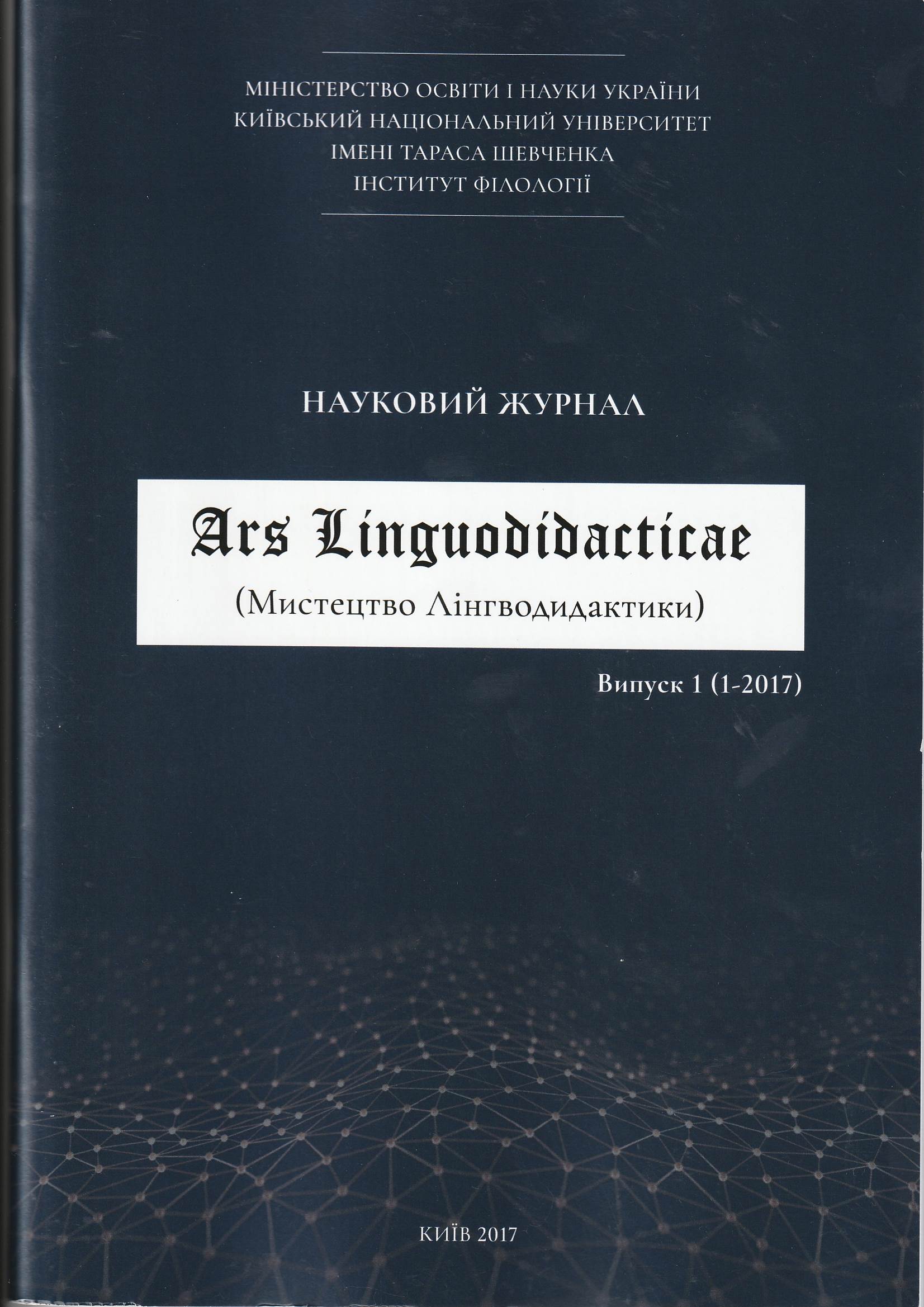THE FORMATION OF FOREIGN LANGUAGE COMMUNICATIVE COMPETENCE OF FUTURE TEACHERS WITH THE HELP OF PROBLEM-BASED LEARNING
DOI:
https://doi.org/10.17721/2663-0303.2017.1.02Keywords:
foreign language communicative competence, technology, future teachers, problem-based learning, problem-based tasks, skillsAbstract
Background: The formation of the appropriate level of future teachers’ foreign language communicative competence is possible with the help of effective methods and technologies which enhance students learning, motivate them and involve in different activities. Problem-based learning is regarded as one of the most appropriate technologies to be used+ for future foreign language teacher training.
Purpose: The purpose of the article is to characterize problem-based learning and substantiate the conditions of its effective usage for the formation of future teachers foreign language communicative competence.
Results: The formation of the appropriate level of future teachers foreign language communicative competence with the help of problem-based learning will be effective under the following conditions: individual approach to students; taking into account their interests, aims; focus on the development of strategic competence; employing communicative, cognitive, cultural, research (linguistic and pedagogical) problem-based tasks which develop necessary skills; gradual difficulty increase; professional approach; the development of student autonomy which means finding a unique way of problem solving.
Discussion: Further investigations are necessary to substantiate and develop the methodology of the formation of future teachers’ foreign language communicative competence with the help of problem-based learning and on the basis of the integrative approach. Besides, the research should focus on using problem-based learning in foreign language training of students of different fields with the emphasis on their future profession.References
Evans, Virginia and Dooley, Jenny. Upstream Proficiency. Student’s book. Express Publishing, 2002. Print.
Kolesnikova, I. L. and Dolgina, O. A. “Anglo-russkii terminologicheskii spravochnik po metodike prepodavaniya inostrannykh yazykov (English-Russian Thesaurus of Foreign Language Education Terms)”. Saint Petersburg: Izdatelstvo «Russko-Baltiiskii informatsionnyi tsentr «BLITs»», «Cambridge University Press», 2001. Print.
Konysheva, Angelina V. “Sovremennye metody obucheniya angliiskomu yazyku (Modern Methods of English Language Teaching)”. Saint Petersburg: KARO, Minsk. : Izdatel’stvo «Chetyre chetverti», 2005. Print.
Safonova, Viktoriya V. “Izuchenie yazykov mezhdunarodnogo obshcheniya v kontekste dialoga kul’tur i tsivilizatsii (Learning Languages of International Communication inthe Context of the Dialogue of Cultures and Civilizations)”. Voronezh: ISTOKI, 1996. Print.
Safonova, Viktoriya V. “Problemnye zadaniya na urokakh angliiskogo yazyka v shkole (Problem-based Tasks at the Lessons of English)”. Moscow: Evroshkola, 2001. Print.
Solovova, Elena N. “Metodicheskaya podgotovka i perepodgotovka uchitelya inostrannogo yazyka: integrativno-refleksivnyi podhod (Methodical Training and Retraining of the Foreign Language Teacher: integrative-reflexive approach)”. Moscow, 2004. Print.
“Suchasnі tekhnologіyi navchannya іnozemnikh mov і kul’tur u zagal’noosvіtnіkh і vishchikh navchal’nikh zakladakh (Modern Technologies in Teaching Foreign Languages and Cultures at Schools and Higher Educational Institutions)”. Ed. by Sophia Yu. Nіkolayeva. Kyiv: Lenvіt, 2015. Print.
Shchukin, Anatolii N. “Lingvodidakticheskii entsiklopedicheskii slovar’: bolee 2000 slov (Linguo-didactic Encyclopedic Dictionary: more then 2000 words)”. Moscow: Astrel’ : AST : Khranitel’, 2007. Print.
Zimniaya, Iryna A. “Pedagogicheskaya psikhologiya (Pedagogical Psychology)”. Moscow: Logos, 2001. Print.
Downloads
Published
How to Cite
Issue
Section
License
Copyright (c) 2017 Ірина Задорожна

This work is licensed under a Creative Commons Attribution-ShareAlike 4.0 International License.
This work is licensed under a Creative Commons Attribution-NonCommercial 4.0 International License.
Copyright policy according to the terms of the license: Creative Commons "Attribution-NonCommercial" 4.0 International (CC BY-NC 4.0).
Authors who publish their articles in "Ars Linguodidacticae" (Open Access Journal) retain the following rights:
- The authors retain the copyright of their article and grant the Ars Linguodidacticae journal the right to first publish the manuscript of their article under the Creative Commons (CC BY-NC 4.0) Attribution License, which allows others to freely distribute the published work with mandatory reference to the author of the original work and first original publication in the Ars Linguodidacticae journal. An indication of the retention of the copyright of the work is provided on the title page of the article.
- The authors reserve the right to enter into separate contracts for the non-exclusive distribution of their article as published in Ars Linguodidacticae (e.g., placing the article in electronic libraries, archives and catalogs or publishing it as part of institute collections and monographs), provided that a full reference to the first original publication in Ars Linguodidacticae is given.
- The policy of the "Ars Linguodidacticae" journal allows and encourages authors to post a manuscript both before and during editorial processing, as this promotes productive scientific discussion and has a positive effect on the speed and dynamics of citing the article.
The editorial board reserves publishing rights to:
- the collated original articles and to the entire issue of the journal.
- the design of the journal and original illustrative and supplementary materials.
- the reprint reprints of the Journal in printed and electronic form.
The copyright policy is carried out according to the terms of the license: Creative Commons "Attribution-NonCommercial" 4.0 International (CC BY-NC 4.0).
For more information, please read the full text of the CC BY-NC 4.0 Public License.
Creative Commons Attribution-NonCommercial 4.0 International License.


